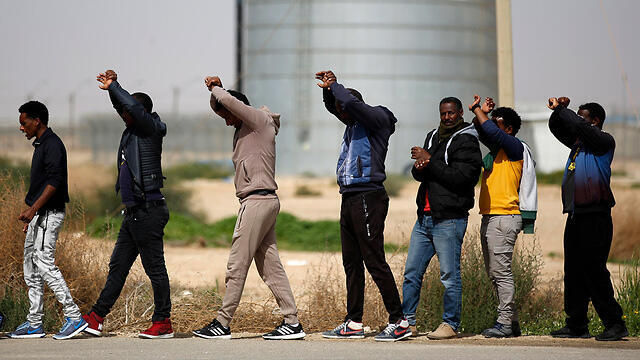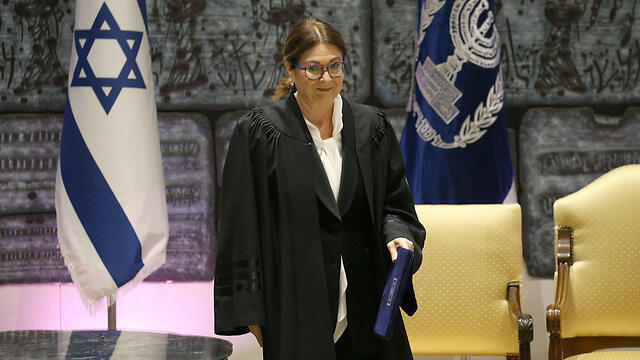Getting your Trinity Audio player ready...
The High Court of Justice (HCJ) discussed Tuesday a petition filed by human rights organizations for the release of over 200 illegal African migrants detained in Saharonim detention facility.
The state, which is against releasing the migrants at least until after the conclusion of negotiations with a third country, said to be Uganda, insists that their deportation to the east African country is still on the cards.
However, as the state representative Shosh Shmueli told the judges that a special envoy dispatched by Prime Minister Benjamin Netanyahu to the third country is continuing efforts to persuade it to take in the detained migrants, Supreme Court Chief Justice Esther Hayut responded bluntly, “So there is no agreement.”
The state representative also admitted during the discussions that Israel was in contact with the UN regarding a deal aimed at resolving the migrant crisis before Prime Minister Netanyahu accepted it, suspended it and then scrapped it all together within twenty-four hours, noting that the HCJ had not been informed.
The judges responded by harshly criticising the state for failing to inform it, but afterwards acceded to a request by removing observers and petitioners from the room and continuing the discussions.
Before their removal, in response to the petition, the state emphasized that continued contacts were in place via the special envoy to an African state in order to deport those detained in the facility.
Attorney Barak Cohen, who represents the petitioners, decried during the discussions the decision to keep the detainees in a state of limbo, adding that the humanitarian issues was being forgotten.
“There is uncertainty regarding who the agreement is referring to. We are not dealing here with merchandise, but with human beings,” he said.
“The state says on Sunday ‘there is an agreement’, on Monday it says ‘there is no agreement,’ on Tuesday it says ‘there is a new agreement,’ on the evening of the same day it says ‘the agreement is suspended’ and at night ‘the agreement is canceled,’” Cohen continued.
“A few days later there is an agreement with another state. Sometimes the conduct harms human dignity.”
Hayut asked Shmueli if there was, as of now, an agreement. “Agreements were signed with two countries a number of years ago and updates to the agreement were signed,” she responded.
During the discussions, another justice decried the indefinite detentions. “You are holding people in detention. So what should they be told? That there is a high probability that they will be absorbed?,” asked Justice Meltzer, in reference to a request last week by the state that more time be granted to make a decision on the matter due to the fact that there is a “high probability” that Uganda would accept the migrants.
“In other words, if you put people on a plane will they not be taken in because there is no agreement?,” Hayut asked.
Meltzer pointed out that the “foreign minister of that country said there is no deal to accept the people by force, so how is there a high probability? This is a novelty—to detain people only if there is a high probability of deporting them. Freedom is the alternative.”
The petition was filed to the HCJ by social activists last week. At the end of the week, the state told the HCJ that the special envoy was still in Uganda and that that there is a high probability that a "third country" will accept illegal African migrants deported by Israel, just days after a diplomatic debacle with the UN on the issue.
Given the development, the state asked that more time be granted nefore a final decision was made. However, the temporary injunction prohibiting the detainees’ deportation remains valid as long as the state does not make a final decision.
A group of 58 African migrants released from the detention facility last Wednesday who had been awaiting deportation before the collapse of an international deal to send them to Rwanda, said that they intend to return straight to Tel Aviv and search for work there, despite being instructed by authorities not to.




